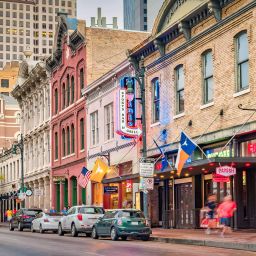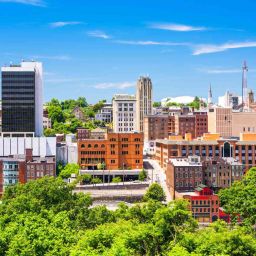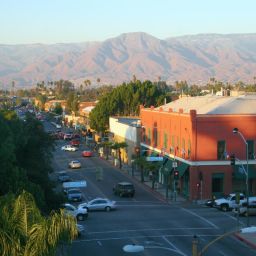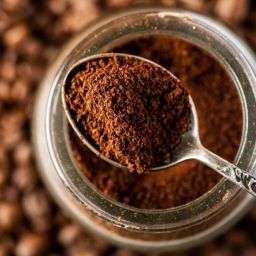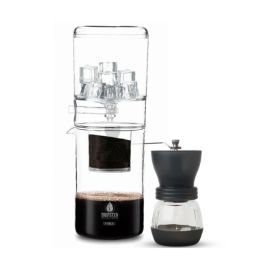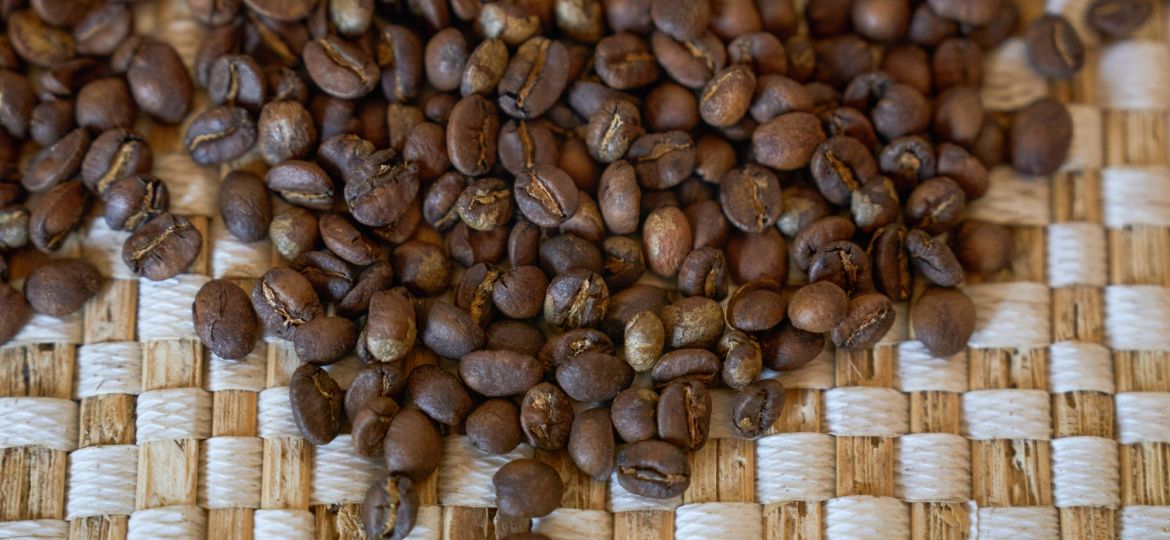
The intriguing practice of consuming coffee beans directly, rather than brewing them into a drink, is gaining attention for its potential energy-boosting effects. This method offers a more concentrated form of caffeine, along with other compounds beneficial to health, providing an immediate and potent source of energy.
Unlike the traditional method of drinking coffee, eating the beans can introduce a different experience in caffeine absorption and effect, appealing to those seeking a quick and efficient energy boost.
The Science of Caffeine in Coffee Beans
Caffeine is a natural stimulant found in coffee beans, known for its ability to enhance alertness and reduce the feeling of fatigue. When coffee beans are consumed directly, caffeine is absorbed into the bloodstream through the digestive system and starts to stimulate the central nervous system. This stimulation leads to increased neurotransmitter activity, such as dopamine and norepinephrine, which enhances focus, alertness, and overall cognitive function.
The effects of caffeine on the body can vary widely among individuals, influenced by factors like metabolism, tolerance levels, and sensitivity. Generally, caffeine’s energy-boosting effects become noticeable within 15 to 30 minutes after consumption and can last for several hours, depending on the amount consumed and individual metabolic rates. However, the direct consumption of coffee beans provides a more rapid absorption of caffeine compared to drinking brewed coffee, potentially leading to quicker and more intense effects.
Furthermore, caffeine’s influence extends beyond mere energy enhancement. It has been associated with various health benefits, including improved physical performance, increased fat burning, and reduced risk of certain diseases. Yet, it’s important to consume caffeine in moderation to avoid adverse effects such as insomnia, nervousness, or increased heart rate, which can result from overconsumption.
Types of Coffee Beans and Their Caffeine Content
Coffee beans, primarily classified into Arabica and Robusta, vary significantly in their caffeine content, flavor profiles, and growing conditions. Arabica beans, known for their smooth, complex flavor profiles, contain less caffeine compared to Robusta beans. Typically, Arabica beans have about 1.2% to 1.5% caffeine by weight, making them a preferred choice for those sensitive to caffeine or seeking a milder coffee experience.
Robusta beans, on the other hand, are recognized for their strong, robust flavor and higher bitterness due to their higher caffeine content, usually around 2.2% to 2.7% by weight. This higher caffeine content not only contributes to the bean’s bitter flavor but also provides a more pronounced energy boost. Robusta’s resilience against pests and diseases can be attributed to its caffeine levels, acting as a natural repellent.
The choice between Arabica and Robusta beans often comes down to personal preference and desired caffeine intake. Arabica beans are favored for their nuanced flavors, suitable for those who appreciate the subtle notes in their coffee. Conversely, Robusta beans cater to those who prefer a stronger, more intense coffee experience, along with a higher caffeine kick.
Nutritional Profile of Coffee Beans
Coffee beans are not only valued for their stimulating effects but also for their nutritional benefits. They are rich in antioxidants, such as chlorogenic acid, which is known for its health benefits, including reducing inflammation and blood pressure. The antioxidant content in coffee beans can vary depending on the type of bean and the roasting process, with darker roasts typically having less chlorogenic acid than lighter roasts.
Beyond antioxidants, coffee beans contain essential nutrients, including vitamins B2 (riboflavin), B3 (niacin), and B5 (pantothenic acid), magnesium, potassium, and manganese. These nutrients contribute to the overall health benefits associated with coffee consumption, such as enhanced brain health, metabolic regulation, and possibly reduced risk of chronic diseases.
The caffeine content in coffee beans not only provides the well-known energy boost but also contributes to fat burning and improved physical performance. However, the nutritional benefits and caffeine content should be considered within the context of individual health goals and caffeine sensitivity, as excessive intake may lead to adverse effects.
Benefits of Eating Coffee Beans
Eating coffee beans can offer several benefits, extending beyond the well-known energy boost. Firstly, the direct consumption of coffee beans provides a more immediate release of caffeine, leading to quicker absorption and a faster energy boost compared to drinking brewed coffee. This can be particularly beneficial for those needing instant alertness or an immediate performance enhancement.
Additionally, coffee beans can aid in weight loss. The caffeine present in coffee beans has been shown to increase metabolism and fat burning. This stimulant effect can lead to a temporary reduction in appetite and an increase in calorie burning, making it a useful aid for weight management.
Beyond energy and weight loss, coffee beans are packed with antioxidants, notably chlorogenic acid, which offers various health benefits. These antioxidants can help reduce inflammation, lower blood pressure, and decrease the risk of diseases such as type 2 diabetes and heart disease. The concentrated form of nutrients and antioxidants in whole beans may provide a more potent health boost than brewed coffee.
Risks and Side Effects
However, the consumption of coffee beans is not without its potential downsides. The most common issue is insomnia, as the concentrated caffeine in coffee beans can significantly disrupt sleep patterns. Individuals with caffeine sensitivity may experience pronounced effects, including restlessness and difficulty sleeping.
Digestive problems can also arise from eating coffee beans. The high acid content can lead to stomach discomfort, acid reflux, or exacerbation of pre-existing gastrointestinal issues. Additionally, overconsumption of caffeine can trigger symptoms like nausea, jitteriness, and increased heart rate.
Caffeine sensitivity varies from person to person, and for some, even a small amount of coffee beans can lead to adverse effects. It’s crucial to monitor your body’s response and adjust consumption accordingly.
Practical Considerations
How Many Coffee Beans Can You Safely Eat?
The safe limit for caffeine intake for most healthy adults is up to 400 mg per day. Considering an average Arabica bean contains about 6 mg of caffeine, while Robusta beans contain about 12 mg, one can safely consume approximately 33 Arabica beans or 16 Robusta beans daily without surpassing the recommended caffeine threshold. However, individual tolerance varies, and it’s important to consider other sources of caffeine in your diet.
Comparing Eating Beans to Drinking Coffee
Comparing the effects of eating coffee beans to drinking brewed coffee reveals differences in caffeine absorption and overall impact. Eating coffee beans provides a more concentrated form of caffeine, leading to faster absorption and a more immediate energy boost.
This method bypasses the brewing process, which can dilute caffeine content and delay its release into the bloodstream. However, the quick absorption of caffeine from eating beans can also lead to a faster decline in its effects, whereas the slower release from brewed coffee may offer a more sustained energy level over time.
FAQs
Do Coffee Beans Give You More Energy Than Coffee?
Yes, eating coffee beans can provide a more concentrated form of caffeine, leading to a quicker and sometimes more intense energy boost compared to drinking brewed coffee. The direct intake of caffeine from beans allows for faster absorption into the bloodstream.
How Long Does The Energy Boost Last?
The duration of the energy boost from coffee beans varies by individual but generally lasts for several hours. The effects of caffeine can peak within 30 to 60 minutes of consumption and gradually wear off after 3 to 5 hours.
Can You Eat Coffee Beans Raw?
Yes, you can eat coffee beans raw or roasted. Raw beans are edible but may have a more acidic and bitter taste compared to roasted beans, which offer a more palatable flavor profile.
Which Coffee Beans Are Best for Eating?
Arabica beans are often preferred for eating due to their smoother and more flavorful profile compared to the stronger and more bitter Robusta beans. However, the choice depends on personal taste preferences and desired caffeine content.
What Are the Alternatives for Energy Instead of Coffee?
Alternatives for an energy boost include green tea, which offers a milder dose of caffeine along with antioxidants, and snacks combining protein, healthy fats, and complex carbohydrates, such as nuts and yogurt, for sustained energy release.
Conclusion
Eating coffee beans provides a potent source of caffeine, offering immediate energy boosts along with health benefits from antioxidants and nutrients. However, it’s important to be mindful of potential risks such as insomnia, digestive issues, and caffeine sensitivity.
Moderation is key, and individuals should consider their caffeine tolerance and dietary habits when consuming coffee beans. Ultimately, while coffee beans can be a quick and effective energy source, they should be consumed responsibly and as part of a balanced diet.



